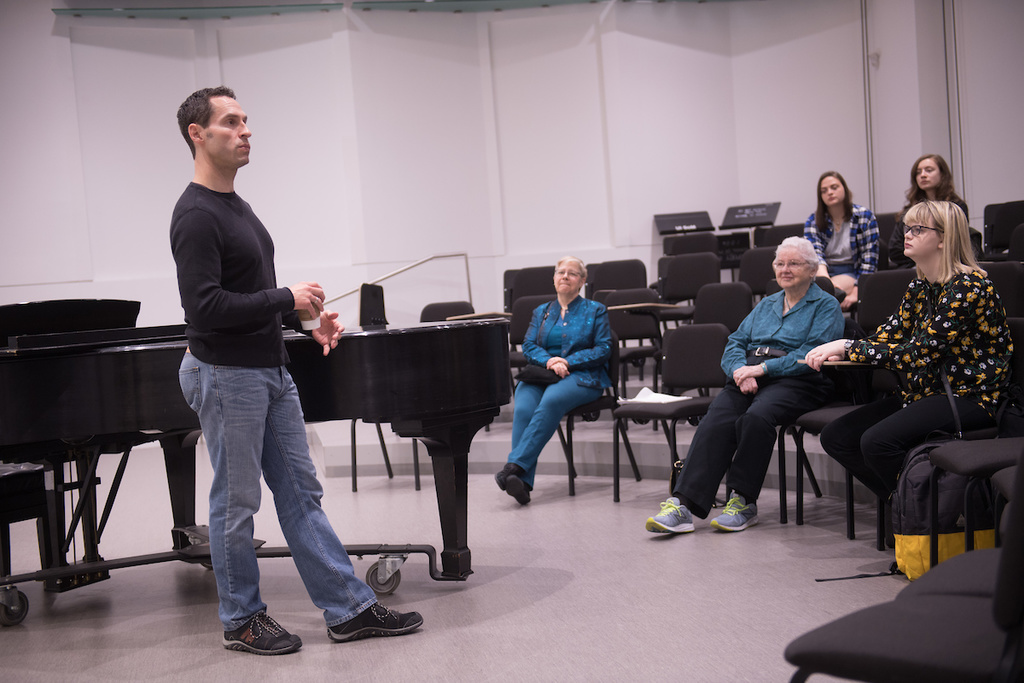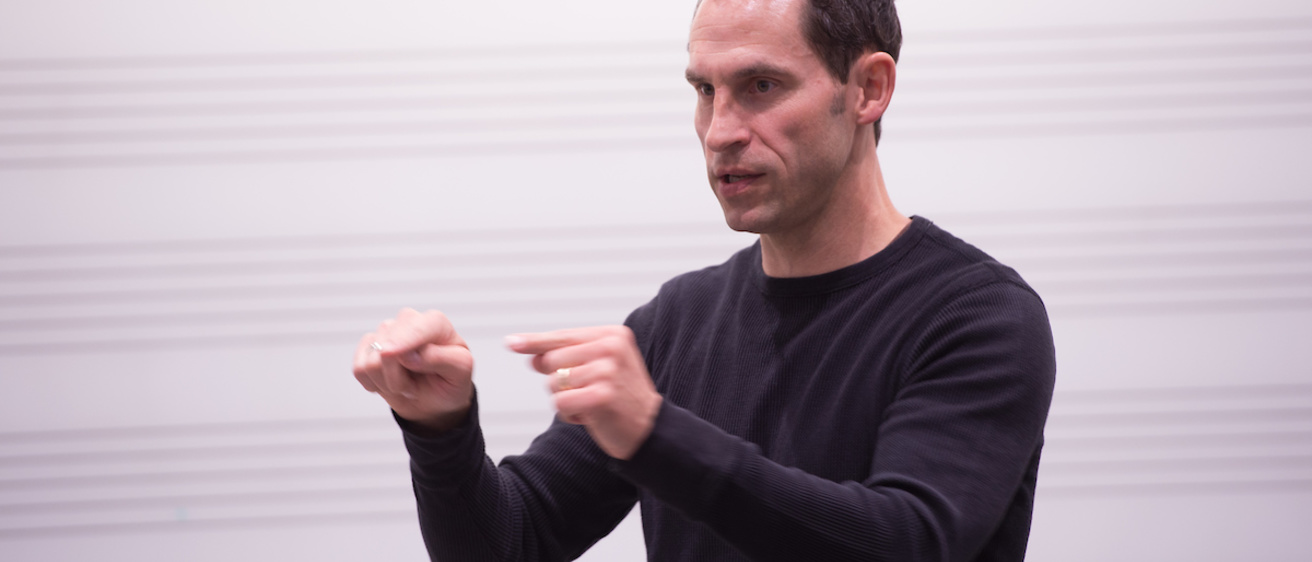A career as an opera star couldn’t be more different from one as an Army helicopter pilot.
Kyle Ketelsen, who graduated from the University of Iowa in 1995 with a bachelor’s degree in music, is in regular demand by the world’s leading opera companies and orchestras. While music was a big part of his life growing up in Clinton, Iowa, he didn’t dream of a singing career—or even know what opera was until high school. Instead, he wanted to fly helicopters for the Army. He joined the Army National Guard and served for six years, but he says basic training changed his mind about making it a career.
Ketelsen started college at Mount St. Clare in Clinton and transferred to the UI in 1991. When he got to campus, he didn’t have a major.
“About three weeks into the semester, I decided to audition for the vocal faculty to take voice lessons,” Ketelsen says. “Ever since I was a child, I sang for one thing or another. I wanted to keep my voice in shape, so I auditioned.”
It was at that audition that former UI music professor Albert Gammon made a prophetic statement.
“Young man, you have a voice that’s going to have an international career if you decide to have it,” Gammon said, according to UI professor of music Katherine Eberle, who also was at the audition.
Ketelsen currently is performing as Leporello in Don Giovanni for the Dallas Opera, but he returned to campus April 23 to sing at the UI for the first time since he graduated.
“It was a milestone for me to be asked back to perform,” Ketelsen says.
Ketelsen says he never just assumed that he would succeed as a singer. He thinks that mindset benefited his career, particularly early on.
“Toward the end of my time at Iowa, Albert Gammon suggested I go to Indiana University and study under Giorgio Tozzi,” Ketelsen says. “I said, ‘Who? Where?’ I was just that naïve. Indiana is the largest music school in the world, and Giorgio Tozzi was one of the most famous singers of the 20th century. Once again, I didn’t expect anything, but I started getting attention and roles.”
Since then, the bass-baritone has performed for audiences across the country and around the world. After his run this spring in Dallas, he will be seen later in the year on the stages of the National Opera House of Lyon in Lyon, France, and the Metropolitan Opera in New York City.
Ketelsen credits some of his success to being in the right place at the right time with the right people. Eberle says there’s another important aspect that can’t be overlooked: hard work.
“He keeps improving over the years,” Eberle says. “He’s a strong student and continues to study voice and work with international coaches to perfect his skills.”
Along with his vocal abilities, Ketelsen says he always works to improve his stage skills. They remind him of basketball, which he played regularly at the UI Field House when he was a student.
“There are so many analogies between sports and the arts,” Ketelsen says. “You hear of basketball players who have great court vision and can see and react to everything on the court. On stage, things can change every night, so you need to be able to see it coming and alter your performance based on what’s happening.”

Ketelsen says a variety of qualities are needed to be successful as a professional singer, including determination, perseverance, discipline, and confidence. But there’s one some people might not think of: feeling comfortable being by themselves.
“I’m happy being by myself, which is crucial because I’m on the road a lot,” Ketelsen says. “If you have 10 performances over the span of three weeks, you’ll have two or three days in a row in which you don’t have work and you’re in a city where you might not know anyone.”
Ketelsen calls Sun Prairie, Wisconsin, home, where he lives with his wife and two children. He says he was lucky to find a spouse who, as a professionally trained singer herself, understands the business. The two met at the UI.
“She’s also very independent, and she knew what I would be doing before I did,” Ketelsen says. “I know a lot of people who get married and then divorced because their spouse is a non-singer or non-musician and really didn’t understand what it would entail to have a mate in this business, which at times can be very difficult.”
While he returned to the UI campus about a decade ago to teach a master class, April 23 was the first time he performed here since graduating. Watching an alumnus, who is a professional singer, perform was inspiring for students, Eberle says.
“Many can’t afford to go see them perform in other cities. Plus, there’s nothing like hearing and seeing someone live in your own recital hall,” Eberle says. “When you’re sitting 10 to 30 feet away, you can see how they stand, how they breathe, how much they open their throat, how they phrase a line. You see what it takes to become an international singer.”
While on campus, Ketelsen did a Q&A with students and community members, during which he fielded questions about work-life balance—“I wanted to be a husband and father before I knew what opera was”—how to prepare for auditions; language acquisition for roles; vocal health; what it’s like to sing at the Met; and taxes—“The more complicated your taxes become, the better you’re doing.”
Ketelsen says while it was exciting to see the new Voxman School of Music Building and the new Hancher Auditorium, he has fond memories of the old buildings. One that stands out was a musical in which he performed, Pasatieri’s Goosegirl, for an audience of elementary school children.
“It’s always fun singing for kids because they get so excited and they look for every opportunity to scream and cheer and applaud,” Ketelsen says. “There was a moment where I, as the king, came out with a basket of cookies and asked, ‘Who wants cookies?’ and then we did a cookie song. The kids went crazy, and it was all we could do onstage to keep straight faces and continue singing through the chaos.”
